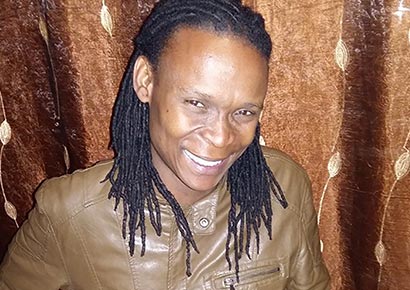More than new laws needed to curb and punish LGBTI hate crimes

No justice: Bobby Motlatla
With police seemingly uninterested in interviewing witnesses or watching video evidence, the killer or killers of LGBTI music student Bobby Motlatla continue to get away with murder. For laws to function, the authorities must do their work, write Prof Frans Viljoen and Raymond Leteswalo.
Hate crimes, especially those targeting lesbian, gay, bisexual, intersex and transgender (LGBTI) persons, occur frequently in South Africa, despite the promise (and guarantee) of non-discrimination on the basis of sexual orientation in our Constitution.
A hate crime is committed if a person commits any recognised offence and the commission of that offence is motivated by unlawful bias, prejudice or intolerance. The offences most often committed against victims of hate crimes are related to the physical and emotional integrity of the person, such as murder, assault or rape, as well as offences against the property of the victims, such as robbery and housebreaking.
OUT LGBTI Well-being, a non-governmental organisation focusing on LGBTI issues based in Pretoria, in 2016 released a research survey on LGBTI discrimination and hate crimes in South Africa. The research results show that a significant proportion (41%) of those surveyed knew of someone who had been murdered due to their sexual orientation.
In response to the persistence of hate crimes against LGBTI persons in South Africa, the government established a National Task Team on this topic. The Task Team in turn formed a Rapid Response Task Team comprising representatives of the Department of Justice and Constitutional Development, the National Prosecuting Authority, the South African Police Service and representatives from civil society organisations.
The purpose of the Rapid Response Task Team is to urgently attend to pending and reported cases in the criminal justice system where hate crimes have allegedly been committed against LGBTI persons. The National Task Team has met on a number of occasions with the stakeholders concerned but there is as yet a limited record of success in accelerating the conclusion of pending cases of hate crimes in courts and those which are under investigation by the South African Police Services (SAPS).
Although it should be commended for having instituted a system of investigating and responding to these crimes, the Department of Justice, together with the SAPS and NPA, has thus far largely failed in effectively investigating these crimes and bringing perpetrators to justice.
One of the cases that is presently pending before the courts, and which has for some time been on the agenda of the Rapid Response Task Team concerns the murder of Bobby Motlatla. This case is an example of an unsolved hate crime. It is also one of the most shocking incidents that one could imagine taking place at an institution of higher learning.
On 10 November 2015, Bobby, a 35-year-old LGBTI music student at the University of the North West in Potchefstroom, was stabbed 39 times in his back and chest with a sharp object. His naked body was found in his bedroom. His apartment key, the remote control of the main gate, cell phone and watch were gone. There were no signs of forced entry into his apartment.
According to information provided to the Rapid Response Task Team, the task team of the Potchefstroom/Tlokwe SAPS investigated the crime scene for eight hours in an attempt to search for evidence. The investigating officer, Warrant Officer Dry, was also on the scene. On 16 November 2015, a post mortem was done by Dr Moorad.
The fact that this hate crime remains unsolved is puzzling and disappointing. It is common cause that the incident began in a bar, where the deceased was attacked by two men. It is important to note that, compared to the deceased, the two attackers were physically of stronger built. The bar has been fitted with surveillance cameras and the video footage of the incident is available, as it has been kept by the owner. There are witnesses available who can testify about the identity of the attackers in the bar (and therefore potentially, the perpetrators of the murder) and how the whole incident began.
However, no information has been placed before the Rapid Response Task Team that the witnesses have ever been called in for questioning or had their statements taken. The Detective Unit at the Potchefstroom police station was contacted regarding the progress of the case but up to this point there is no arrest of the perpetrators and the matter remains under investigation.
At the moment, the Draft Bill on Prevention and Combating of Hate Crimes and Hate Speech is under consideration. If adopted, it would introduce into South African legislation the concept of hate crimes. This is a step in the right direction. However, even if such legislation is adopted, it is clear that effective police investigation and prosecution will remain important challenges.
For more information on LGBTI hate crimes, visit the website of the Love Not Hate campaign: a multi-partner initiative addressing violence against LGBTI persons. You can also follow the campaign on Facebook and Twitter.
What a vomit nation !